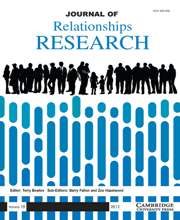Article contents
IVF-Conceiving Fathers' Experiences of Early Parenthood
Published online by Cambridge University Press: 23 February 2012
Abstract
This study explored the experiences of fathers during early parenthood, with a particular focus on relationships with their partners, their children and the impact of infertility treatment. Eight fathers who had a child conceived through in-vitro fertilisation (IVF) participated in in-depth interviews and responses were analysed using Modified Analytic Induction. Findings indicated that in the first year of their child's life fathers deferred primary caretaking to their partners, as they perceived them as more able to meet the needs of the child at that developmental stage. However, as the child grew older, and fathers could interact more they came to view themselves as the friend or playmate of the child, a role they experienced as highly rewarding. Reasons that may have accounted for deferring the primary caretaker role in the first year included low self-efficacy beliefs about their ability to care for a newborn infant, perceived partner criticism of their parenting abilities, and the complementary parenting roles adopted in their family. Findings also revealed that fathers experienced relationship concerns due to increased parenting responsibilities limiting the time and energy they had to engage in companionate activities with their partners. Fathers in this research explicitly reported that the difficulties associated with conception and IVF treatment had no impact on early parenthood.
Keywords
Information
- Type
- Articles
- Information
- Copyright
- Copyright © Cambridge University Press 2011
- 4
- Cited by

